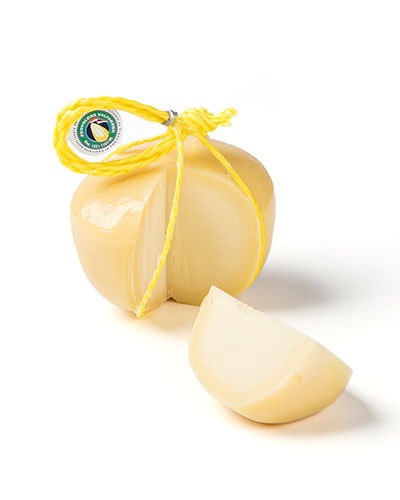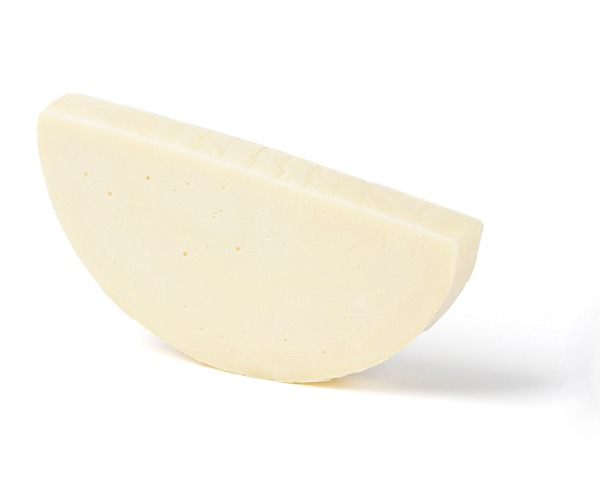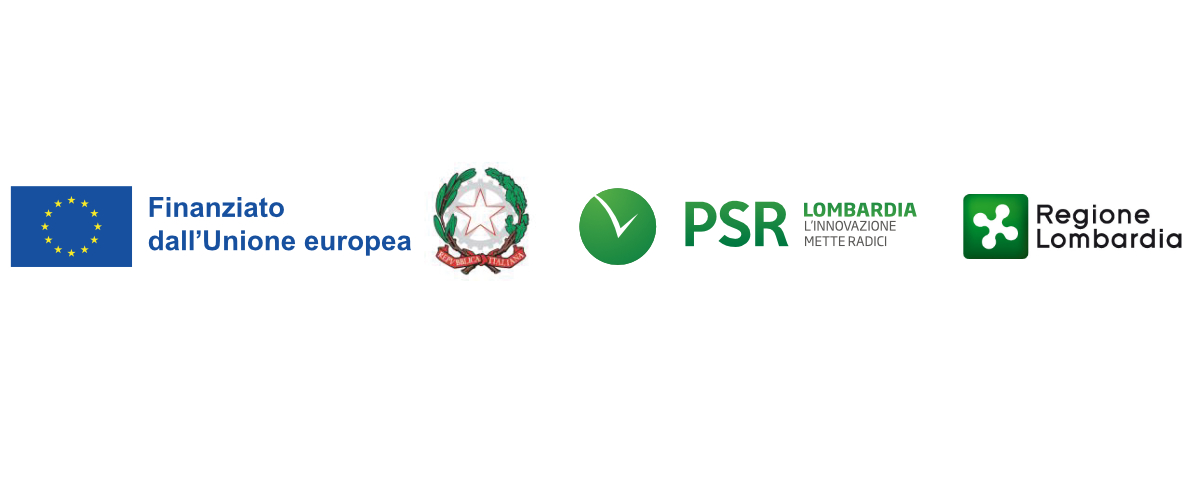Provolone Valpadana PDO
Home » Provolone Valpadana PDO

Provolone Valpadana PDO: characteristics and history of a spun paste cheese
Provolone Valpadana is the cheese spun paste that has the greatest variety of shapes and weights of any other dairy product. The plasticity of the dough, characteristic of Provolone Valpadana during the processing phase, allows master cheesemakers to delight in producing cheeses with a wide variety of weights. Even today you can still come across some “experiments” of a creative cheesemaker in the maturing warehouses of the dairy producers. The production regulations of Provolone Valpadana PDO has safeguarded this cheese-making culture through the identification of typical geometric shapes, replicated in different weights.
We distinguish 4 typical shapes:
- salami
- melon/pearl
- truncated cone
- flask
which can be proposed in weights ranging from a few ounces up to over 100 kg.

SALAMI

MELON PEAR

TRUNCATED-CONE

FLASKS
Types of Provolone Valpadana PDO
A mention should also be dedicated to the two types of Provolone Valpadana:
“Mild“, which is distinguished by the use of calf rennet and by a maturation that does not exceed 2-3 months;
“Strong“, which is distinguished by the use of rennet made of kid and/or lamb paste and by a maturation ranging from a minimum of 3 months to more than a year.
In addition, there are two additional types:
“Smoked”: one of the most popular smoked cheeses due to its unique combination of aroma and flavour; both the mild and strong types as in the smoked version.
“Aged Strong”: the largest wheels undergo a long aging period, which can last even longer than one year.
Discover our tasting tips and sensorial profiles of the Provolone Valpadana PDO
Portioning
Provolone Valpadana is also available portioned (in “pre-packaged” jargon) in practical packaging generally around 200 g, at the refrigerated counters of the points of sale.
Although they can also be released for consumption with different weights, all pre-packaged Provolone Valpadana packs must indicate the correct Protected Designation of Origin, the trademark that identifies it and the authorization number released by the Consorzio Tutela Provolone Valpadana to each packer.

The History
Provolone Valpadana PDO derives from the family of spun paste cheeses, which are characterized by the curd “spinning” technique and have ancient origins.
The first notes on this Italian cheese date back to the Middle Ages and indicate the birth of their particular production technology in southern Italy.
Coded with its own standard since 1938 (Royal Decree 17 May 1938, n.1177), Provolone was protected as “Provolone Tipico” from the mid 1950s, as a result of the revision of national legislation on cheeses (Law n. 125 of 10 April 1954 and Presidential Decree 30 October 1955, n.1269).
Since the '90s
Since 1993 (DPCM 09 April 1993) the name Provolone Tipico has declined, essentially identifying a “generic” cheese, which was later replaced by the name “Provolone Valpadana AOC”, a cheese with an Appellation d'Origine Contrôlée
Since 1996, Provolone Valpadana has been called “PDO”, Protected Designation of Origin (Commission Regulation (EC) No 1107/96 of 12 June 1996), in accordance with Community legislation (Regulation (EEC) No 2081/92 of 14 July 1992 and subsequent EC Reg. 510/06 of 20/03/2006 and EU Reg. 1152/12 of 21/11/2012), which defines the characteristics of products with a designation of origin.



